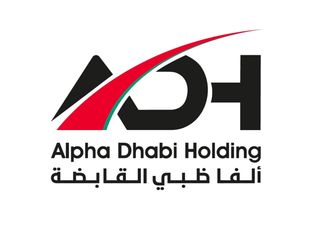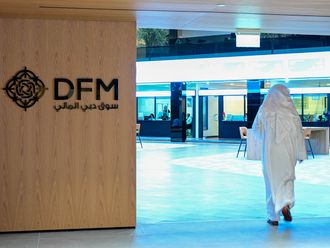Dubai Global Islamic bonds rose for a fourth week, the longest rally since August, as Europe makes progress on containing its debt crisis and the housing market in the Middle East shows signs of improving.
Average yields have dropped 21 basis points since February 10 to 3.72 per cent and touched a four-month low of 3.71 per cent on March 7, according to the HSBC/Nasdaq Dubai US Dollar Sukuk Index.
Yields on 5.154 per cent securities due in 2017 of Tamweel fell 15 basis points last week to 5.18 per cent yesterday, the lowest level since the notes were sold in January, as the UAE-based mortgage lender said profit increased four-fold last quarter.
Stocks rose, commodities advanced and yield spreads on emerging-market bonds narrowed yesterday as private bondholders agreed to swap about 85 per cent of Greek government bonds for new securities, according to a banker briefed on the results who declined to be identified. Bank Negara Malaysia governor Zeti Akhtar Aziz said yesterday demand for sukuk still exceeds the $180 billion outstanding globally.
"Ample liquidity at Islamic financial institutions, the markets' revaluation of the European debt crisis and US growth prospects, boosted appetite for risk assets everywhere," Mohi Al Deen Kronfol, Dubai-based chief investment officer for global sukuk and Middle East and North Africa fixed income at Franklin Templeton Investments (ME), said in an interview Friday.
Yield gap
The difference between average yields on global Islamic notes and the London interbank offered rate, or Libor, narrowed five basis points this month to 267 basis points on March 8, near the smallest spread since November 17, according to the HSBC/Nasdaq index. The extra yield demanded to hold emerging-market bonds over Treasuries shrank to 344 basis points, or 3.44 per centage points, the least since August 5, JPMorgan Chase's global sovereign spread index shows.
Dollar-denominated sukuk of Tamweel and UAE-based developer Emaar Properties have rallied on speculation the real-estate market will start to pick up.
The yield on Emaar's 8.5 per cent Islamic bonds due in August 2016 dropped seven basis points last week to 7.03 per cent, the lowest level since August 4, according to data compiled by Bloomberg.
Yields on Malaysia's 3.928 per cent dollar-denominated Islamic securities due in June 2015 dropped 10 basis points to 1.97 per cent on Thursday and reached a record-low 1.94 per cent on March 2, according to prices from Royal Bank of Scotland Group. The difference in yields between Dubai's 6.396 per cent sukuk maturing in November 2014 and Malaysia's bond was little changed at 240 basis points, approaching an October low, according to data compiled by Bloomberg.
"Investors are shifting into emerging-market assets and sukuk," Aiman Hamzah, who manages about $50 million of assets for Reliance Asset Management Malaysia in Kuala Lumpur, said in an interview.
Islamic bonds of US-based General Electric Capital extended a rally to a fifth week. The yield on the 3.875 per cent notes maturing in November 2014 dropped 10 basis points to 2.54 per cent yesterday, the lowest level since November 7, according to data compiled by Bloomberg. Yields on Saudi Arabia-based Islamic Development Bank's 2.35 per cent sukuk due in May 2016 fell 12 basis points in the first four days of the week to 2.10 per cent, the least in four months.
Undersupply
"Until the pace of sukuk issuance picks up to levels commensurate with the ferocious appetite for sukuk, the secondary markets will continue to be a beneficiary of this undersupply," Malek Khodr Temsah, assistant vice-president of treasury and investment at Albaraka Banking Group in Manama, said in an email yesterday.
Market expands from $4.5b to $7.4b
The sukuk market worldwide is growing at an annual rate of about 40 per cent, Malaysian central bank governor Zeti Aziz said in a statement yesterday.
Global sales of Sharia-compliant bonds, which pay returns on assets to comply with Islam's ban on interest, totalled $7.4 billion (Dh27.17 billion) this year, compared with $4.5 billion in the same period last year, data compiled by Bloomberg show. Offerings reached a record $36.3 billion last year.
Islamic bonds sold to international investors have returned 1.9 per cent this year, according to the HSBC/Nasdaq index, while debt in developing markets climbed 5.5 per cent, JPMorgan Chase's EMBI Global Composite Index shows.












